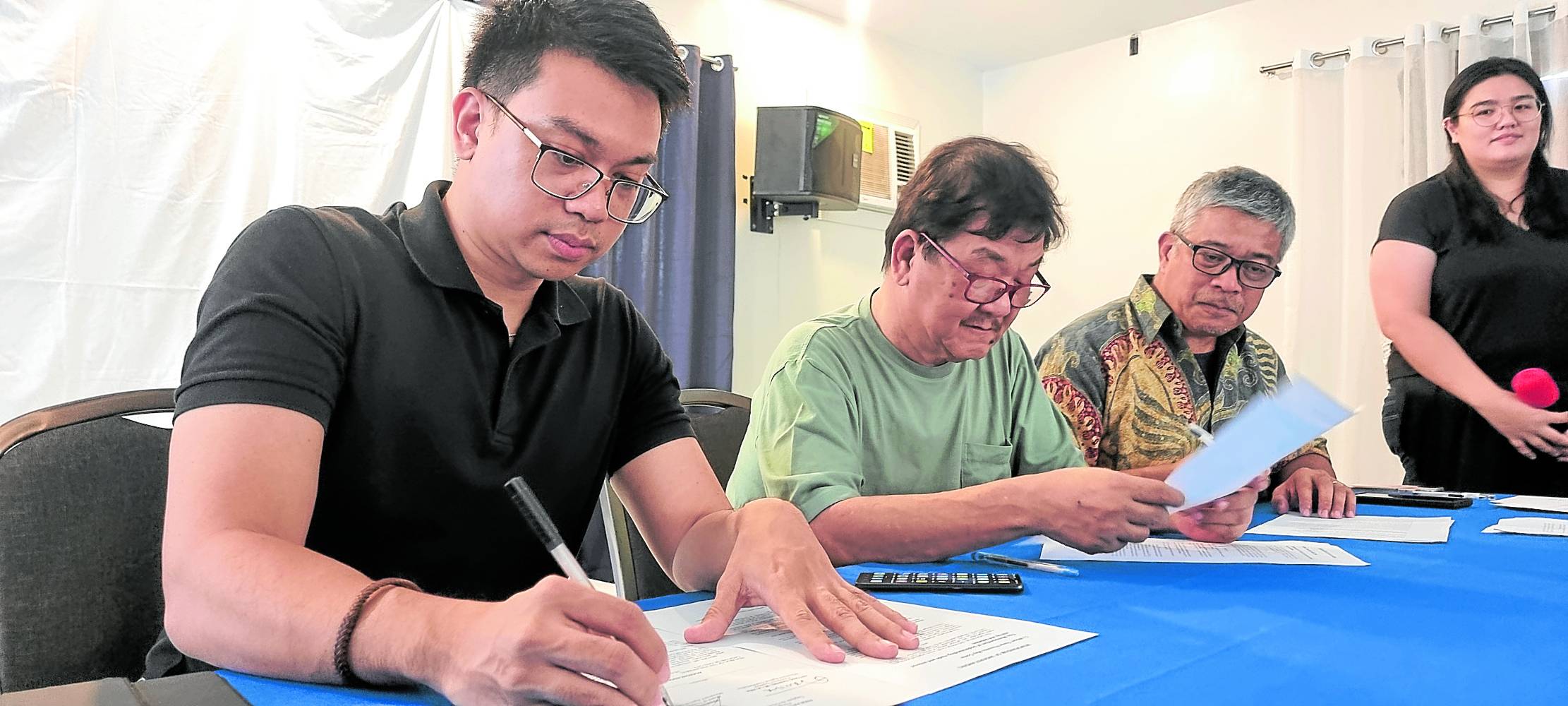
LEGAL AID FOR JOURNALISTS Officers of the Movement Against Disinformation, Cagayan de Oro Press Club and La Viña-Zarate and Associates on Monday ink an agreement to aid journalists sued for libel. —Bobby Lagsa
CAGAYAN DE ORO CITY, Philippines —The Cagayan de Oro Press Club (COPC) and nongovernment organizations (NGOs) Movement Against Disinformation (MAD) and Klima Center, through the law firm La Viña-Zarate and Associates (LVA), signed a memorandum of understanding (MOU) on Monday for free legal services for journalists facing libel cases as they perform their professional duties.
COPC president Froilan Gallardo welcomed the partnership, noting that libel is being used to silence critical reporting about local issues.
Lawyer Antonio Neri of MAD said that journalists have been a target of libel and Red-tagging for speaking up against corruptions in government.
READ: Journalists’ concerns for their safety (Part 1)
Protect free press
“These are dangers to democratic processes. With advocacies and team of lawyers across the country, we walk with the journalists of Cagayan de Oro City because you are the truth tellers in the front line,” Neri said.
READ: Mark Villar seeks measure to protect Filipino journalists
He added that journalists play a big role for truth to prevail. “We are very excited with what we can do with the partnership, and are looking forward for trainings, and get access to libel cases in relation to free speech,” Neri added.
Former Bayan Muna Rep. Carlos Isagani Zarate of LVA said that the MOU is a first in the country, and is in the interest of advancement, promotion and defense of constitutionally guaranteed freedom of expression and of the press.
Zarate, however, cautioned that it doesn’t mean that members of COPC, with a free libel defense, can just do whatever it wants.
“We have to be objective and follow the journalistic code of ethics in your reportage, commentaries and other journalistic pursuits,” he said.
Zarate added that in the age of social media, there is an erosion of media credibility that’s why people rely on social media.
“We are also seeing the pitfalls of social media, while it democratizes access to information, to help our citizens make informed decisions, social media causes confusion (among the) people,” he said.
“That is the challenge to you, professional media, to really observe and practice the code of ethics, because that’s the only way to recover your credibility as sources of information,” Zarate said.
He added that journalists should bring to social media platforms the brand of ethical journalism and be responsible in their posts to help counter disinformation and fake news.
“People deserve objective, truthful information,” Zarate said.